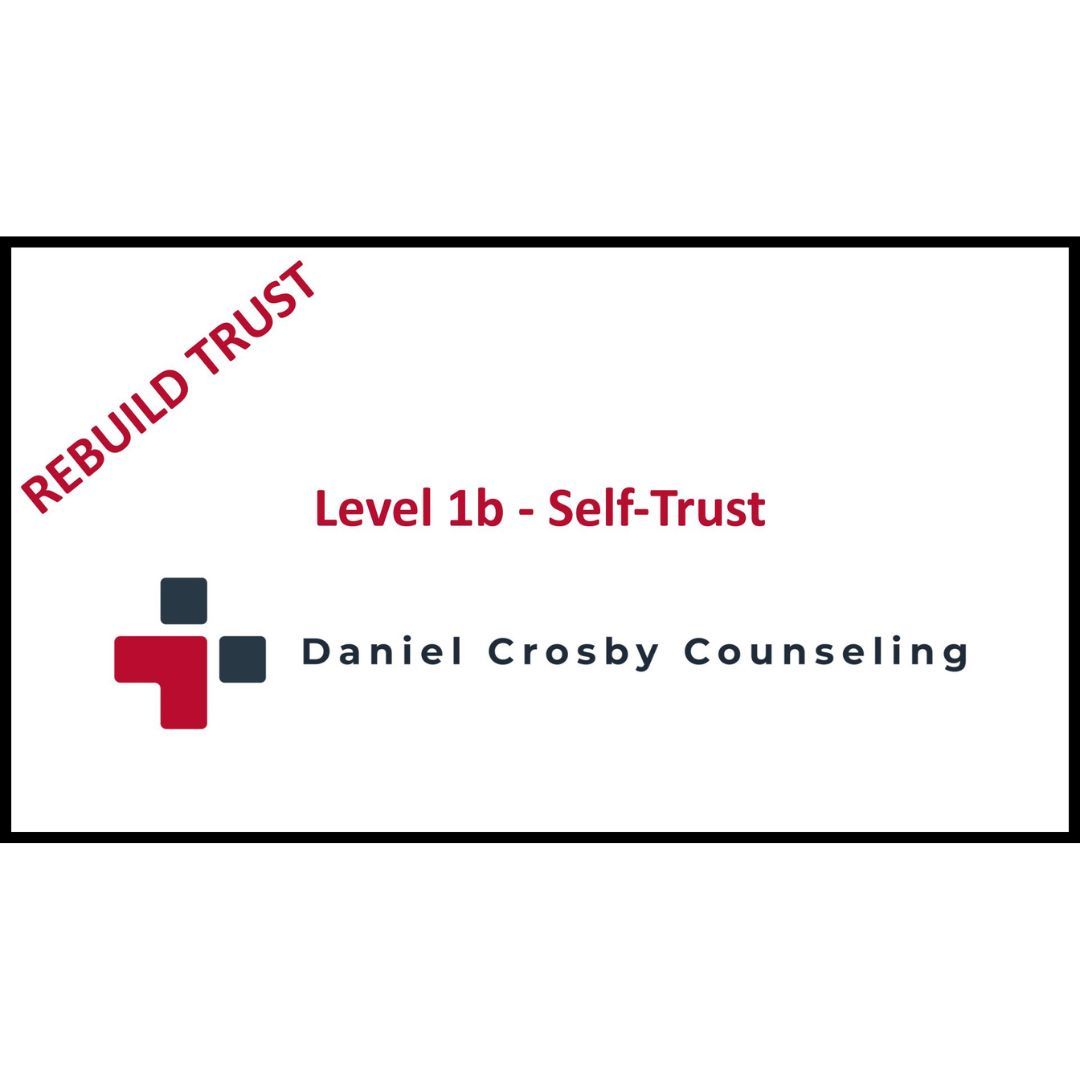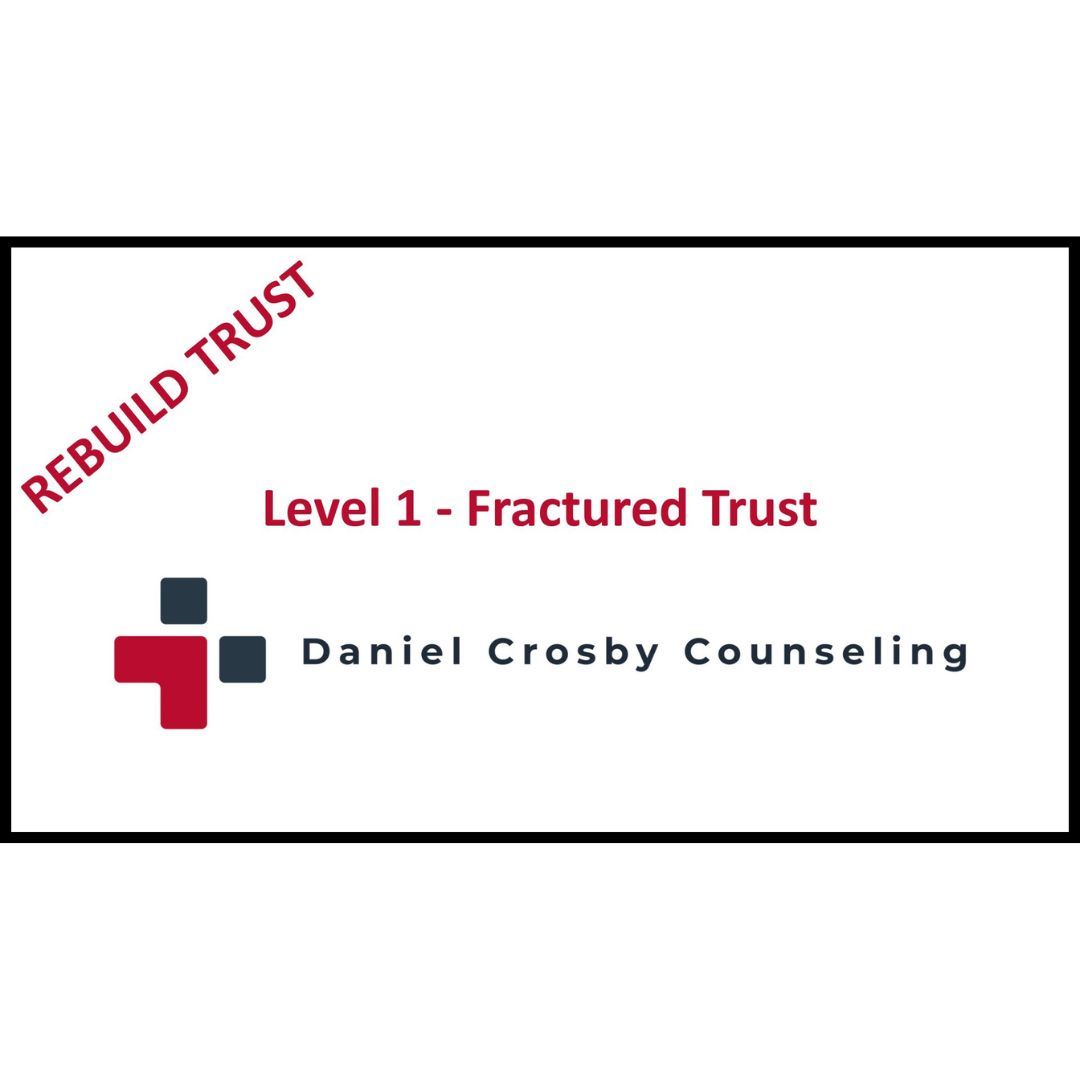Help Heal My Marriage! - 4. Keep It Positive
Daniel Crosby • September 10, 2024
4. Keep it Positive
If someone said 99 good things to me and 1 critical thing, I would obsess about that critical thing all day.
We are wired to look for the threat, the problem, the negative. It’s part of our survival instinct.
The problem is that the world constantly throws negativity at us too. Bosses, social media, and even our kids are telling us things we are screwing up.
Negativity hurts, especially from the person who should be our biggest cheerleader, our spouse.
That’s why we must try to keep it POSITIVE.
Sometimes we need to correct, but our communications should be far more weighted toward the positive than the negative.
Try a ratio of 5 positives for every 1 negative
3 Ways to Keep it Positive:
1. GratitudeKeep a gratitude journal about your spouse and write down the things you like most about them. If your spouse was a terrible person, you never would have said “I do.” Recall all those things you admire about them.2. Catch Them WinningNotice your spouse doing something that pleases you and point out that they did a good job. We often notice good things but never say them aloud. Make it a habit of speaking it when you see it.3. MannersSay “Please” and “Thank you.” You’d be amazed at how this common courtesy can diffuse a tense household.
It’s Go Time:
Secretly, for one week write down 3 different things each day you saw your spouse doing well. At the end of the week read them all 21 things. Watch them smile!
Every day I help hurting frazzled people by walking with them as they get back on the path toward becoming who God created them to be. Shoot me an email if there’s anything I can do to help you or someone you know.

Level 1b: Self-Trust After betrayal, many people don’t just lose trust in their partner, they lose trust in THEMSELVES. “Did I miss the signs?” “Was I naive?” “Can I ever trust my own judgment again?” Rebuilding self-trust is not about becoming fearful or suspicious of everyone. It’s about reconnecting with your perceptions, instincts, and internal signals and learning to respect them again. Maybe you sensed something was off but talked yourself out of it to preserve the relationship or the family. That doesn’t mean you’re bad it means you were trying to do the right thing and ended up getting bit. This level runs through EVERY stage of trust rebuilding. Even as your partner becomes more consistent, your work is to begin to listen to your inner self again. When self-trust grows, you’re no longer relying entirely on your partner’s behavior to feel safe. You begin to carry safety inside yourself again. For the partner who caused the harm: Be patient. Support your partner in regaining confidence in their own feelings and reality. Avoid defensiveness, minimizing, or anything that resembles gaslighting. For the betrayed partner: Practice trusting your instincts and emotional responses. Recall times when you listened to your gut well. Reestablish what you will and will not accept in a relationship and honor those boundaries consistently.

Level 1: Fractured Trust After a betrayal trust shattered. People in this level say, “Everything feels broken. I don’t know if I can ever trust again.” That makes sense, because betrayal doesn’t just hurt your heart; it disrupts your sense of reality and safety. But you’re still here; still considering what repair might look like. The fact that you haven’t walked away entirely says there’s a part of you that hopes healing might be possible. Level 1 is not about forgiveness or resolution. It’s not about moving on. It’s about honesty, stabilization, and finding safety again. This is also a time to avoid impulsive emotional decisions. You don’t have to decide the future today. You just have to survive today and take good care of yourself. You don’t have to know yet whether trust can be rebuilt. Right now, the only question is: Can we create enough safety for healing to begin? And that… is a powerful place to start. For the partner who caused the harm: Acknowledge the pain without defending, minimizing, or explaining it away. DO NOT SAY: “I didn’t mean to,” or “It wasn’t that bad,” or “You’re overreacting.” SAY THIS: “I see the damage. I take responsibility. I’m willing to repair.” Your tone, attitude, and consistency matter more than your words right now. For the betrayed partner: Your work is not to “get over it,” but to let the pain be real without letting it control your life. Try not to distract or numb yourself to the point that you can’t feel anything. This is where trusted friends, a good therapist, or a pastor can come alongside you to help.

Before we jump into the Levels of Trust, it's important that we have a good working definition of how to rebuild trust. "AUTHENTIC CONSISTENCY WITH TRANSPARENCY OVER TIME" Authentic - This cannot be manipulative, spiteful, fake, or contrived. It is humble, cheerful, and freely given. Consistency - Tell me what you're going to do and then do it. Transparency - Whatever you do, do it wide open. No hidden actions, agendas, or ulterior motives. Time - Do it over and over again for as long as it takes. Focus on this definition as we jump into the Levels next time!

